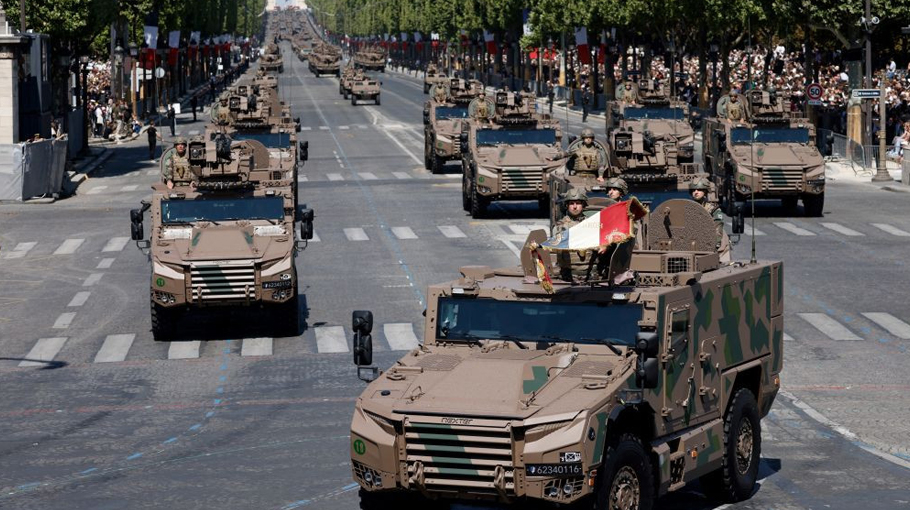IOC trusts French authorities to ‘secure’ Paris 2024

The French capital is preparing for one of the biggest security challenges in its history. 600,000 people are expected to attend the unprecedented Opening Ceremony on the Seine and an average of 40,000 security personnel will be on duty every day. The IOC has full confidence in the "plans in place."
Security is always a top priority for the Paris 2024 Olympic Games. The current global risk and alert situation, particularly in France, requires increased precautions.
In December, the Paris Prefecture and the members of the specially created commissions provided the IOC with detailed documentation, analysed by security experts, outlining the plans and methods they will use to ensure security throughout the event. 16 days of competition will require the vigilance and protection of numerous venues. But the most ambitious challenge is undoubtedly the Opening Ceremony, which will be held outdoors on the Seine for the first time in Olympic history. Security will be complicated by the fact that the athletes will be travelling on more than 150 boats on the river.
So difficult, in fact, that French President Emmanuel Macron admitted last month that the ceremony could be moved to the stadium if full security could not be guaranteed.
More than 500,000 people are expected to attend. The number of spectators has been gradually reduced. Security plans have been tightened to fortify the venue. Security officials have spent many months analysing, reporting and checking every last detail. However, the main concern remains the potential threat from lone wolf attackers, who are more likely to evade control.
AFP, add
French security forces have rejected 13 people who were selected to take part in the torch relay for the Paris Olympics, including some who had committed drugs offences as well as a suspected Islamist, Interior Minister Gerald Darmanin said on Monday.
Around 12,000 people have been vetted after being chosen for the 80-day relay across France which begins in Marseille on May 8 and will finish for the start of the Paris Games on July 26.
The flame will be carried inside a "security bubble" of 100 travelling security forces, comprising motorbike teams, rapid-response forces, anti-drone specialists and anti-terror police.
The torch will be lit in Olympia in Greece, then brought by boat to the southern French port of Marseille on May 8 in a three-masted 19th-century French tall ship called the Belum.
Unfortunately, France has already experienced such attacks. This week, the IOC Executive Board met in Gangneung during the Youth Olympic Winter Games to discuss the latest information on security plans for Paris 2024.
Since the planning of the programme of activities, the security of the Olympic Games has been one of the most time-consuming tasks for the Organising Committee. Various problems arose. These were gradually resolved over time to ensure that everything was well in place six months before the event. The need to protect the events and the participants was so great. The lack of available security personnel became a problem.
The organisers had to hire private companies to provide security. In November, optimism prevailed. It was expected that everything needed for security personnel would be put out to tender by the beginning of 2024. The Organising Committee has always been clear that where public resources are insufficient, private resources will have to be used in addition to public resources.
In addition, the possibility of using the military to provide coverage and reinforcement in areas where private security is insufficient has not been ruled out. Earlier this year [2024], the French authorities also postponed a decision on how many soldiers could be deployed if needed. The attack in Paris last December, in which a German teenager was stabbed to death near the Eiffel Tower, near the Bir-Hakeim steel bridge, has created new uncertainty.
During the Games, these areas will become centres of competition, and the potential vulnerability of security has again created a nervous atmosphere, despite reassuring messages from IOC leaders, such as those delivered in Gangneung last Thursday.


